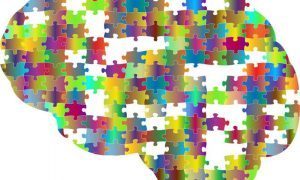From Phys.Org:
 Our brains are obsessed with being social even when we are not in social situations. A Dartmouth-led study finds that the brain may tune towards social learning even when it is at rest. The findings published in an advance article of Cerebral Cortex, demonstrate empirically for the first time how two regions of the brain experience increased connectivity during rest after encoding new social information.
Our brains are obsessed with being social even when we are not in social situations. A Dartmouth-led study finds that the brain may tune towards social learning even when it is at rest. The findings published in an advance article of Cerebral Cortex, demonstrate empirically for the first time how two regions of the brain experience increased connectivity during rest after encoding new social information.
…For the study, 19 participants were asked to complete social encoding and non-social encoding tasks during a brain scan session while undergoing fMRI. Before encoding, they had a baseline rest scan and after each task, a resting state scan of 8.4 minutes, where they could think about anything, as long as they stayed awake.
- For the social encoding task, participants were asked to look at a photograph of a person, their job title such as “doctor” and two traits used to describe the individual such as “educated, sincere.” They were then prompted to evaluate the impression of the person by rating the person’s warmth and competence on a scale of 1 to 100 on a computer screen.
- The non-social encoding task was similar only participants were presented with photographs of a location that was paired with two traits used to describe it upon which they were asked to evaluate the place on warmth and pleasantness.
The participants encoded 60 social trials and 60-non-social trials. Some had the social encoding task first while others had the non-social one first. Right after the scan, participants completed a surprise, associative memory test in a quiet testing room, to assess if they could accurately identify certain photos of persons and places, and their respective set of traits, which were presented earlier. The findings revealed that during the rest period after social encoding, there was an increase in connectivity between the medial prefrontal cortex and tempoparietal junction regions. The greater the connectivity between these two default network regions, the higher the levels of social memory performance. The researchers observed an order effect in which participants who encoded the social information or photographs of persons first maintained higher levels of connectivity between these two brain regions during the post social rest and also the non-social rest period; however, this was not found to be the case for those who were presented with the non-social task first.
The study demonstrates that it appears that the brain consolidates social information as soon as it has the opportunity to rest. “When our mind has a break, we might be prioritizing what we learn about our social environment,” added Meyer.
More here.
